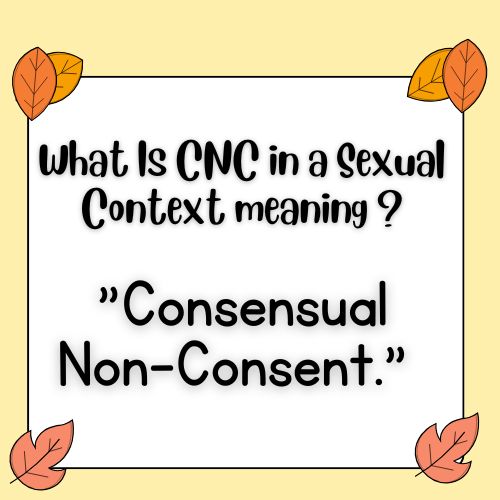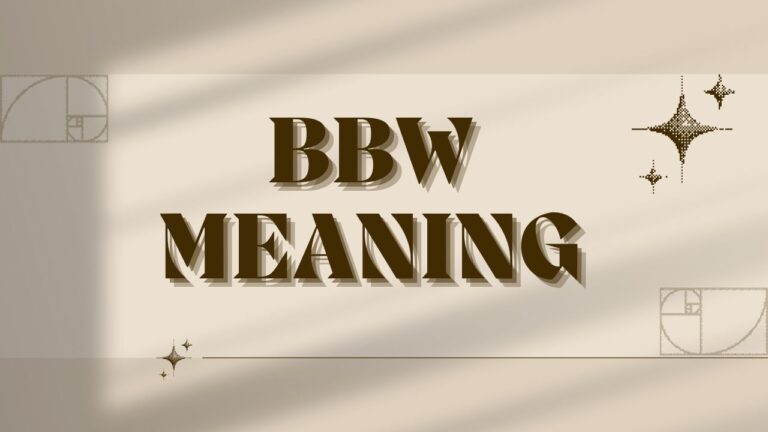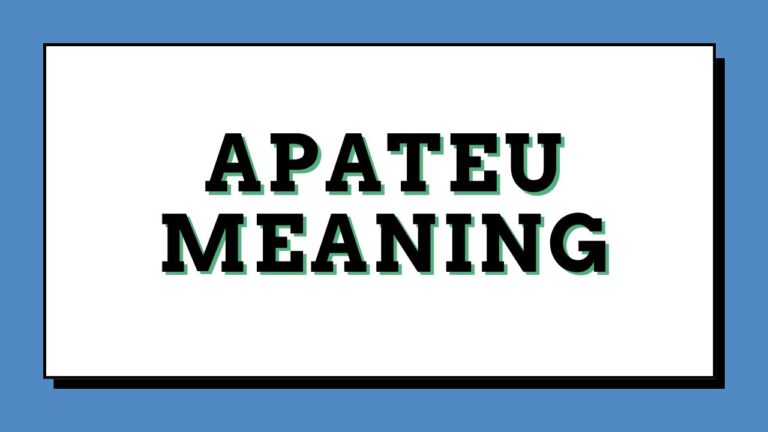CNC in a sexual context stands for Consensual Non Consent. It is a type of roleplay where two or more adults agree in advance to act out scenes that look like non consensual situations, but where everyone has clearly given permission before anything starts. This kind of activity is part of the BDSM community and is built on trust, respect, and strong communication.
The main difference between CNC and actual non consensual acts is consent. In CNC, everyone agrees in advance, sets clear limits, and can stop at any time. In real non consensual acts, there is no agreement, and it causes real harm.
For example:
- CNC: Two adults agree to act out a scenario. They plan it together, and a safe word stops the activity.
- Non-consensual: One person forces another without agreement. This is assault and is illegal.
This difference is critical for both safety and legality. CNC is about controlled fantasy in a safe space. It cannot be spontaneous without discussion.
| Field | Information |
|---|---|
| Acronym | CNC |
| Stands For | Consensual Non-Consent |
| Brief Description | A sexual roleplay concept in which participants agree in advance to simulate non-consensual situations, with clear boundaries and consent established beforehand. Considered part of BDSM practices. |
| Antonym | Genuine non-consent |
| Synonym | Rape play (within consensual boundaries) |
| Alternative Possible Meaning on Internet | Computer Numerical Control (engineering/machining term) |
| Emotion | Trust, thrill (within consensual context) |
| Safe for Work | No |
| Safe for Children | No |
| Emojis | 🔒🤝❌ |
| Trending Date | Regularly appears in BDSM community discussions online (2015–present) |
| Texting Meaning | Short form to indicate interest in consensual non-consent roleplay |
| Social Media Meaning | Hashtag or community tag used by adults to identify related content, discussions, or preferences |
What Is CNC in a Sexual Context meaning ?

CNC, in a sexual context, stands for “Consensual Non Consent.” It refers to a roleplay or sexual activity where one or more people act out a scenario that involves pretending there is no consent, even though clear consent was given beforehand.
The key part is that everyone involved agrees to the activity in advance. It is a form of adult roleplay, not actual non-consensual behavior.
People agree on rules, boundaries, and safe words before starting. A safe word is a pre-decided word or signal that stops the activity immediately.
Read More: BBI Meaning
Why Is Consent the Most Important Part of CNC?
Consent in CNC means all people fully understand what will happen, agree to it, and feel safe to stop it at any point. Without this, the activity crosses into abuse.
Consent involves:
- Talking about the idea beforehand
- Setting limits (what is allowed and what is not)
- Agreeing on signals to pause or stop
- Checking in with each other after the activity
Surveys in BDSM communities show that CNC roleplay is practiced by a smaller percentage of participants compared to other forms of roleplay. This is because it requires high levels of trust and emotional safety between partners.
How Do People Set Boundaries in CNC?
Boundaries are rules that protect physical and emotional safety. In CNC, boundaries are set before the activity starts.
Examples of boundaries:
- Areas of the body that cannot be touched
- Specific actions that are off-limits
- Limits on language or certain phrases
- Time limits for the activity
Some people write these down or use “scene negotiation forms” used in BDSM groups. Clear boundaries help prevent misunderstandings and keep the experience safe for everyone.
What Role Does Communication Play in CNC?
Communication is the base of CNC. Without it, there is no trust and no safety. Communication happens before, during, and after the activity.
Before: Partners talk about ideas, limits, and safety signals.
During: Partners may check in verbally or use agreed signals to make sure everyone is still comfortable.
After: Partners have a “debrief” to share feelings and check emotional well being.
Many experienced practitioners say aftercare providing comfort and reassurance after a scene is as important as the activity itself.
What Are Safe Words and How Are They Used in CNC?
Safe words are pre agreed signals that stop or slow down the activity. They can be simple words like “red” for stop, “yellow” for slow down, and “green” for okay.
The safe word must be respected immediately. If a person says it, the scene ends, no matter what was planned. This rule is not optional t is the core of safe CNC practice.
Non verbal signals, like tapping out or dropping an object, can be used if speech is not possible during the roleplay.
Read More: Plancha Meaning
Are There Risks Involved in CNC?
Yes, CNC carries risks if not done correctly. Physical risks include injury if actions are too rough or unsafe. Emotional risks include feelings of fear or trauma if boundaries are ignored.
Ways to reduce risks:
- Only engage with trusted partners
- Plan scenes in detail
- Keep first aid supplies nearby for any accidents
- Make sure everyone is in a stable emotional state before starting
Studies in kink communities show that the majority of reported injuries in BDSM happen when there is poor communication or lack of preparation.
Who Should Avoid CNC Roleplay?
CNC roleplay is not for everyone. People who have experienced sexual trauma or who do not feel completely safe with their partner may find CNC triggering or harmful.
It should be avoided if:
- There is no full trust between partners
- There is no willingness to talk openly about limits
- Someone feels pressured into it
- One partner refuses to use or respect safe words
Healthy CNC requires emotional maturity and mutual respect. Without these, it can cause serious harm.







